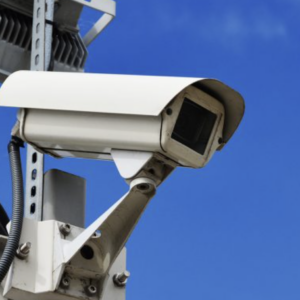The Lansdowne Borough Council has rejected a plan to bring automated license plate readers to two intersections.
The borough received $30,000 in state money from the Pennsylvania Commission on Crime and Delinquency to install the license plate readers at Baltimore and Union Avenues and Baltimore and Lansdowne Avenues.
The readers would have taken a picture of a license plate and then compared it with other license plates in a database. Police Chief Kenneth Rutherford said the technology could find vehicles without insurance or with expired registration.
He added the technology would make it easier for officers to find criminal suspects, particularly after shootings. “As the person that you put in charge of this police department, I am telling you that this is an effective tool for the borough.”
The borough’s 17 officers signed a letter in support of the license plate readers.
The council felt otherwise. It rejected the grant by a 5-2 vote that exposed a division on public safety versus privacy concerns.
“I support the police very much and you having the tools that you need to keep us safe,” said Councilwoman Carol Martsolf just before the vote. “But I don’t feel like, due to public comment, our town is ready for that quite at this time.”
“I’m very biased because I know for a fact how [technology] helped me,” argued Councilman William Griffin. “It impacted my family, and that’s why I’m advocating for it.”
Griffin used the theft of his wife’s vehicle as an example of how police can use technology. He said officers used cameras to track down the vehicle.
Other council members argued that privacy is already largely lost. Councilman Benjamin Hover said cameras are already used in schools and malls and on cell phones. He also called it a necessary tool. “It is the world we’re in and if we solve a crime quicker instead of letting it linger, I’m for it.”
Public comment was noticeably against the license plate readers, however.
One resident disputed Rutherford’s claim that the license plate readers helped reduce crime.
“Even promoters of this technology admit that only a small percentage of scans – typically less than a fraction of 1 percent – tend to be relevant to public safety concerns,” said Joe Martino. He feared that data would be shared elsewhere and eventually be used to track the movements of drivers in real time.
Another resident said the council should reject the plan due to privacy concerns.
The use of license plate readers by law enforcement has been debated for years, including within agencies. The Federal Bureau of Investigation halted a program that bought license plate readers more than a decade ago before restarting it. The Department of Homeland Security planned a database of license plate numbers in 2014 before ending plans.
With the amount of technology being used by law enforcement, the Electronic Frontier Foundation (EFF) created an online ‘Field Guide to Police Surveillance.’ The EFF said it will help Americans understand how law enforcement uses and abuses the devices.
Lansdowne has a mobile license plate reader for a squad car. It’s not being used because the department switched to new police cruisers.
Police remain supportive of expanded technology. They credited cameras for helping officers find a teen shooting suspect in Upper Darby and finding the man accused of throwing Molotov cocktails at a Prospect Park duplex.
Rutherford told DVJournal he wished the council made a different decision. “The officers of the Lansdowne Police Department and I are very disappointed with the end result but remain dedicated to serving and protecting the interests of the people of Lansdowne.”
Privacy advocates disagree.
“Where you go can reveal many things about you—whether you attend political rallies, which religious institution you attend, if you go to the gun store,” the ACLU’s Allie Bohn wrote in an op ed.
And the Electronic Frontier Foundation (EFF) found more than 99.9 percent of data collected by license plate readers is not connected to any crime or public safety interest.


